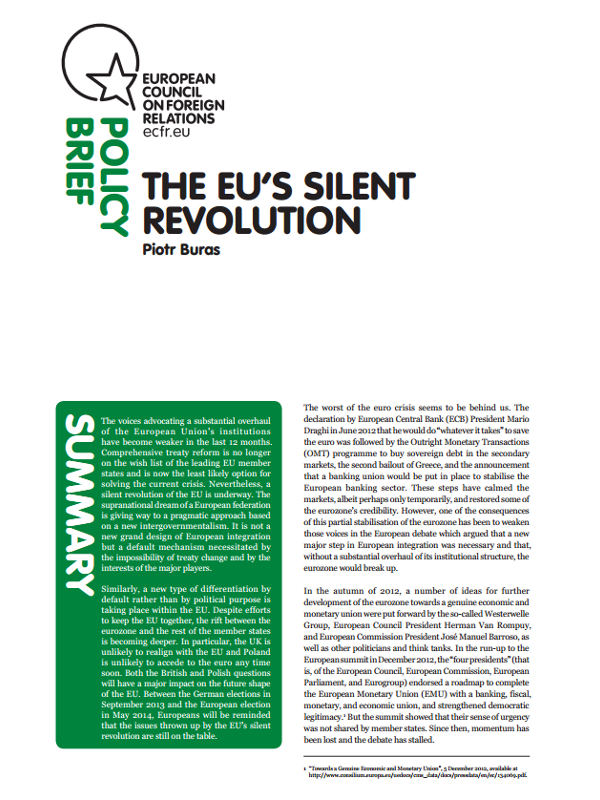The EU’s silent revolution
More intergovernmentalism, more differentiation
The economic crisis has led to a silent revolution in the European Union. The supranational dream of European federation is giving way to an intergovernmental approach, a default mechanism necessitated by the impossibility of treaty change and the interests of major EU members.
Similarly, a new differentiation dynamics – by default, not political purpose – is taking place. The UK is unlikely to realign with the EU and Poland unlikely to accede to the eurozone in the near future.
In a new ECFR paper – “The EU’s silent revolution” – Piotr Buras lays out the risks presented by this silent transformation of the EU:The intergovernmental approach may weaken the EU’s institutions in the key areas of monetary and economic policy.
- The intergovernmental approach may weaken the EU’s institutions in the key areas of monetary and economic policy.
- Despite the efforts to keep the EU together the rift between the eurozone and the rest of the member states is likely to deepen.
- The rift between the eurozone and the rest of the EU looks unlikely to heal. This rift will be exacerbated by further integration within the eurozone using the intergovernmental method, weakening wider EU institutions and structures and leading to a two or three tier Europe.
- This will exacerbate other problems thrown up by the crisis, such as European unity and the democratic deficit.
“The silent revolution of intergovernmentalism may solve some of the EU’s problems, but it will exacerbate others and create new ones. This means that after this month’s German elections the debate over Europe’s institutional reinvention will once again see all the issues thrown up by the euro crisis – such as European unity and the democratic deficit – once again on the table.” Piotr Buras
The European Council on Foreign Relations does not take collective positions. ECFR publications only represent the views of their individual authors.



